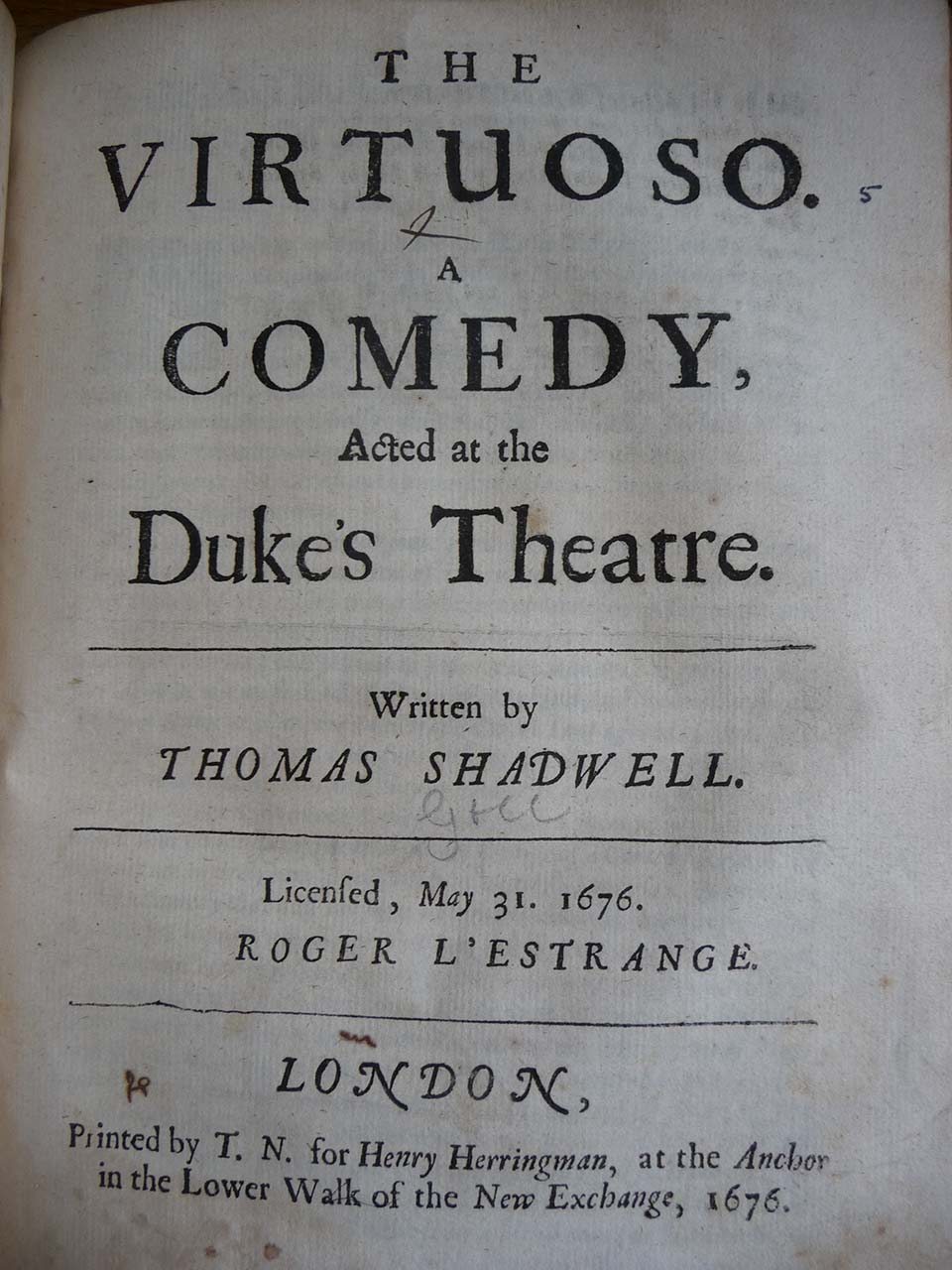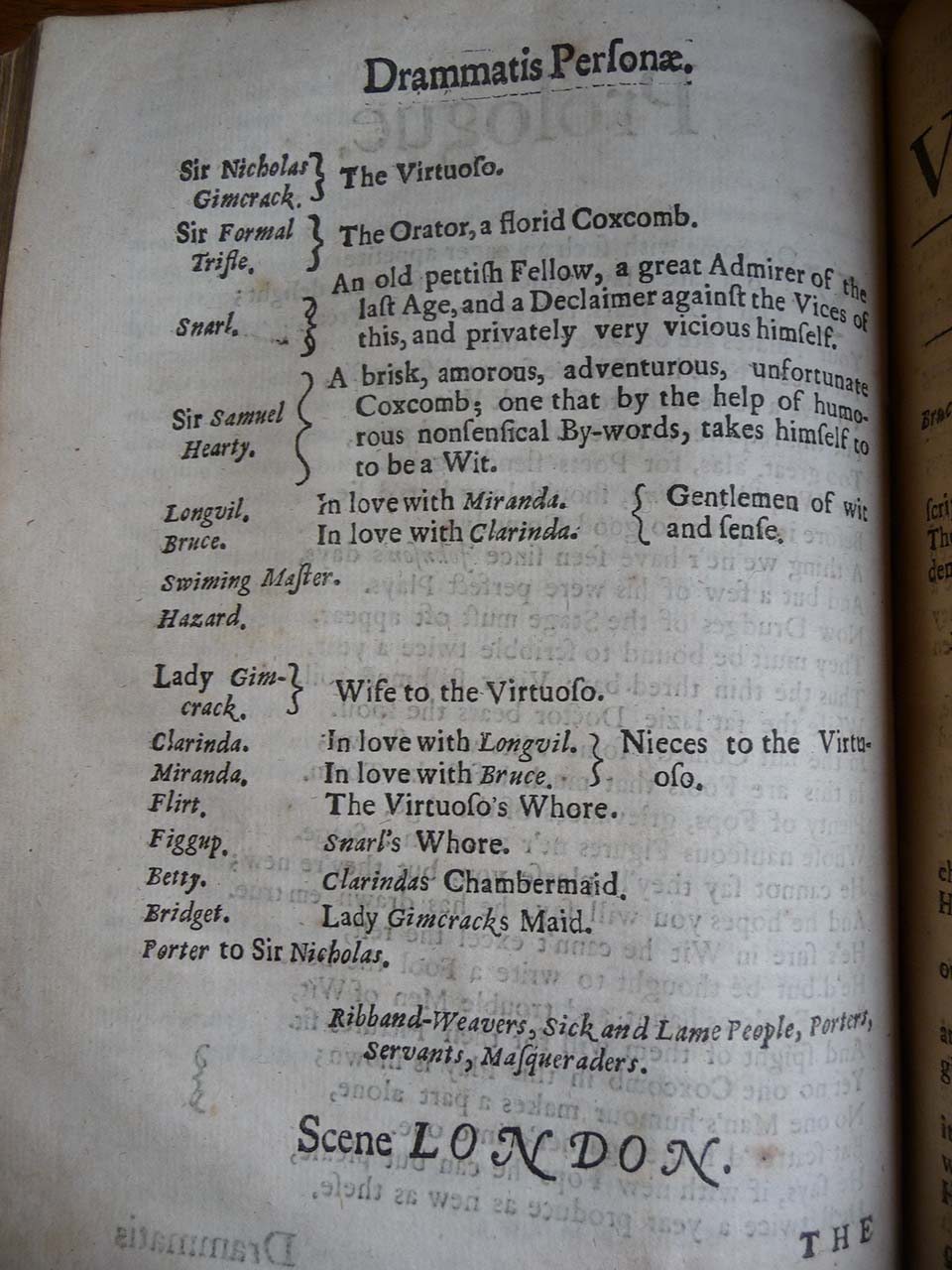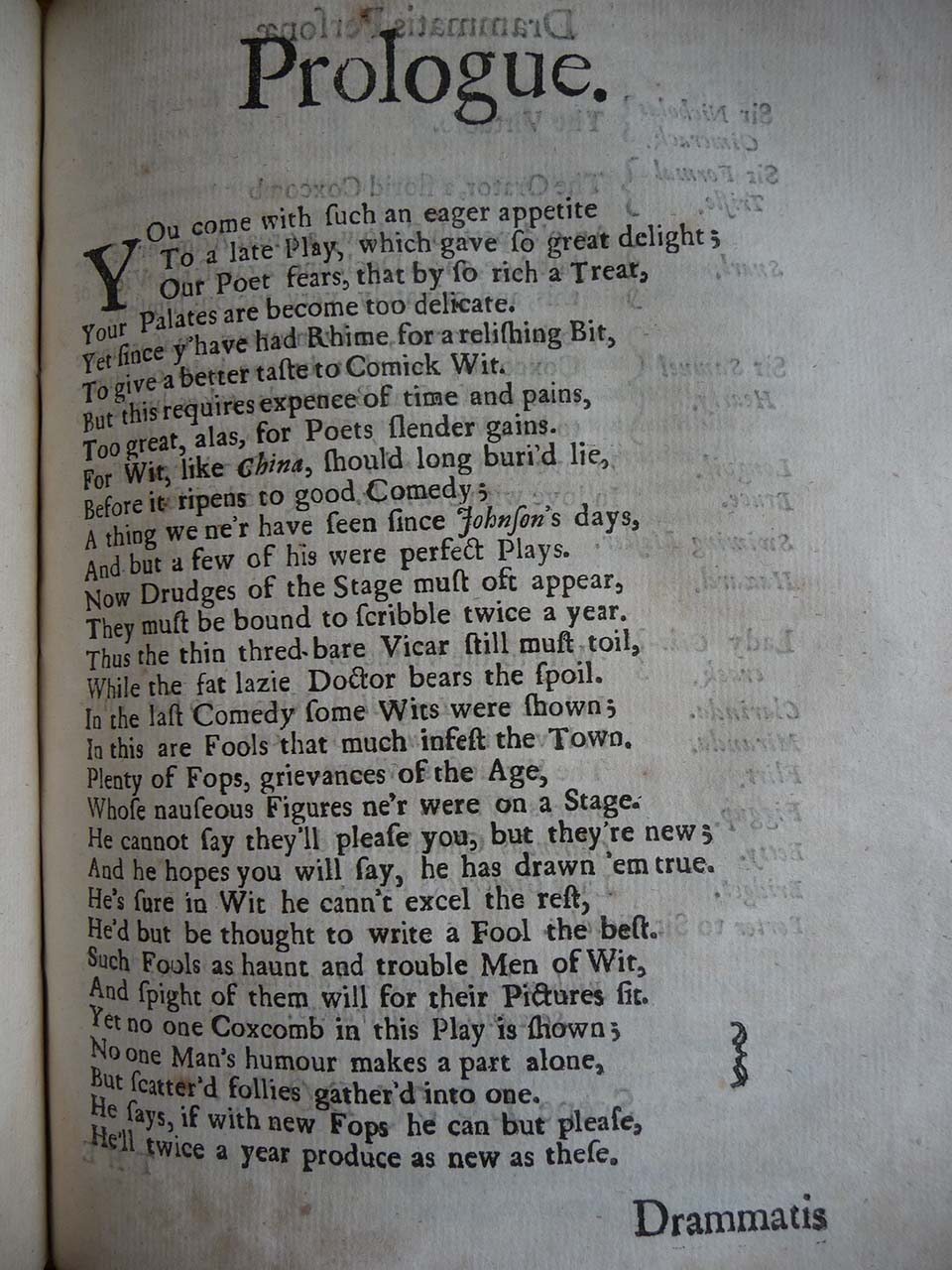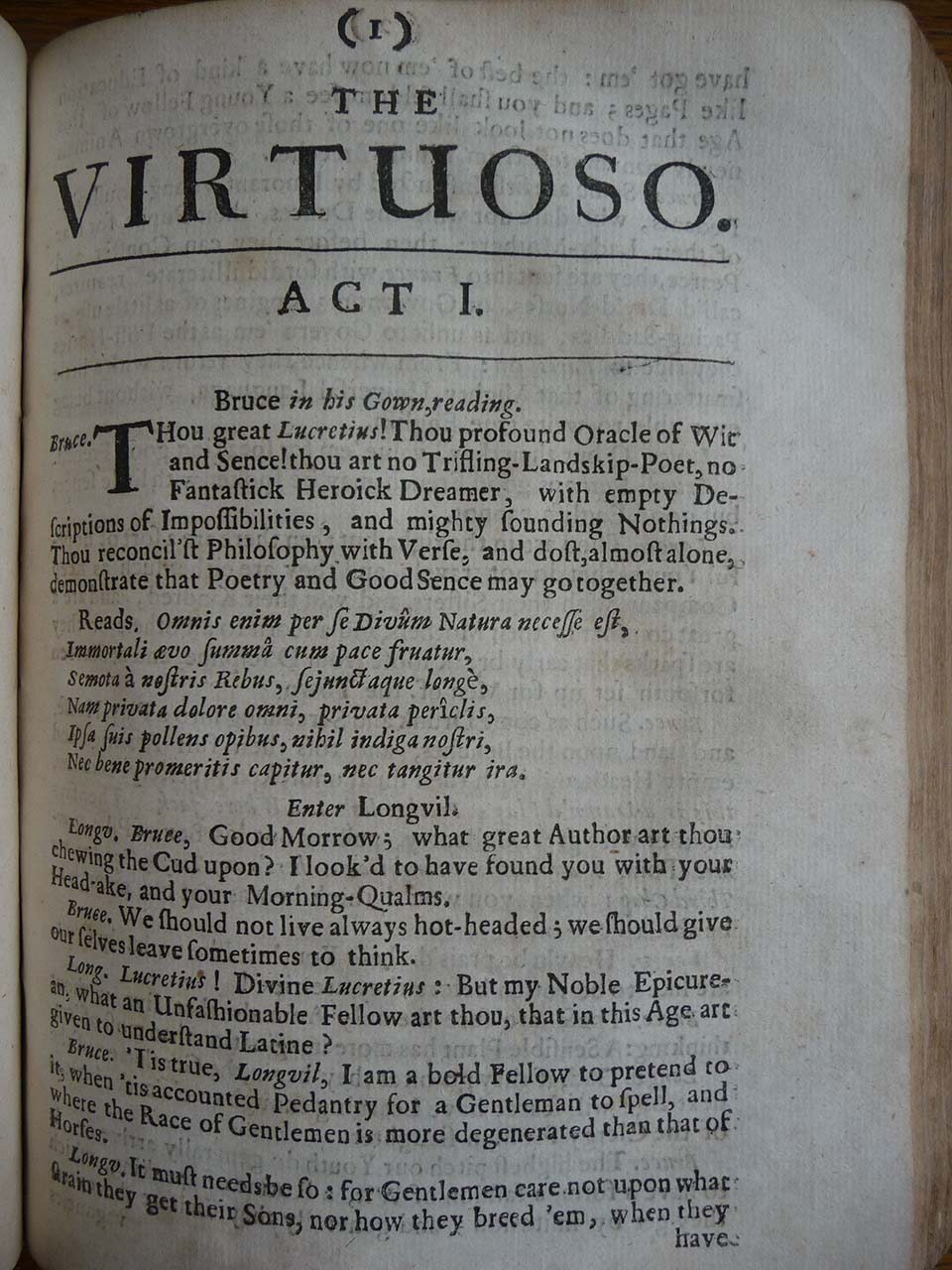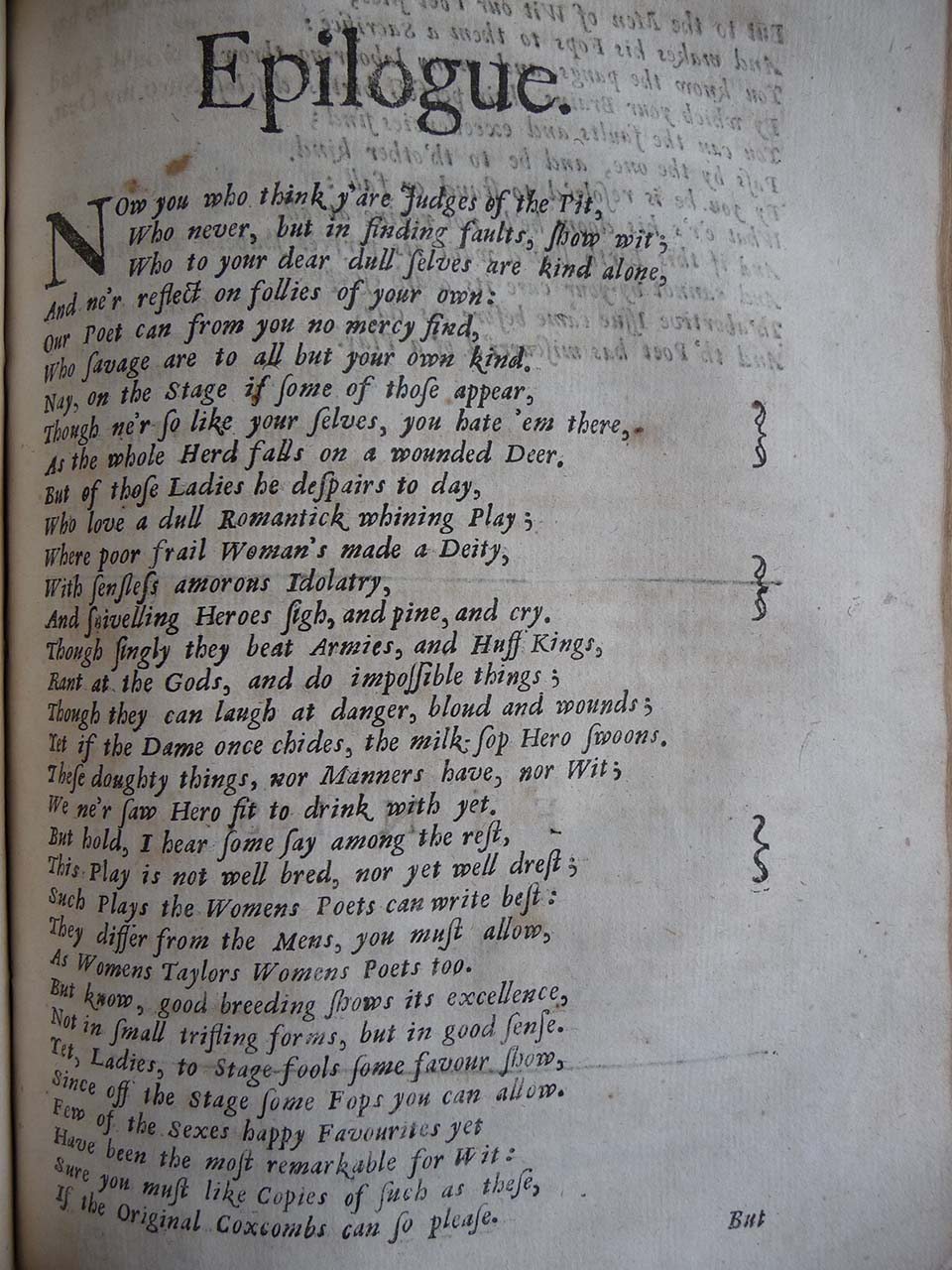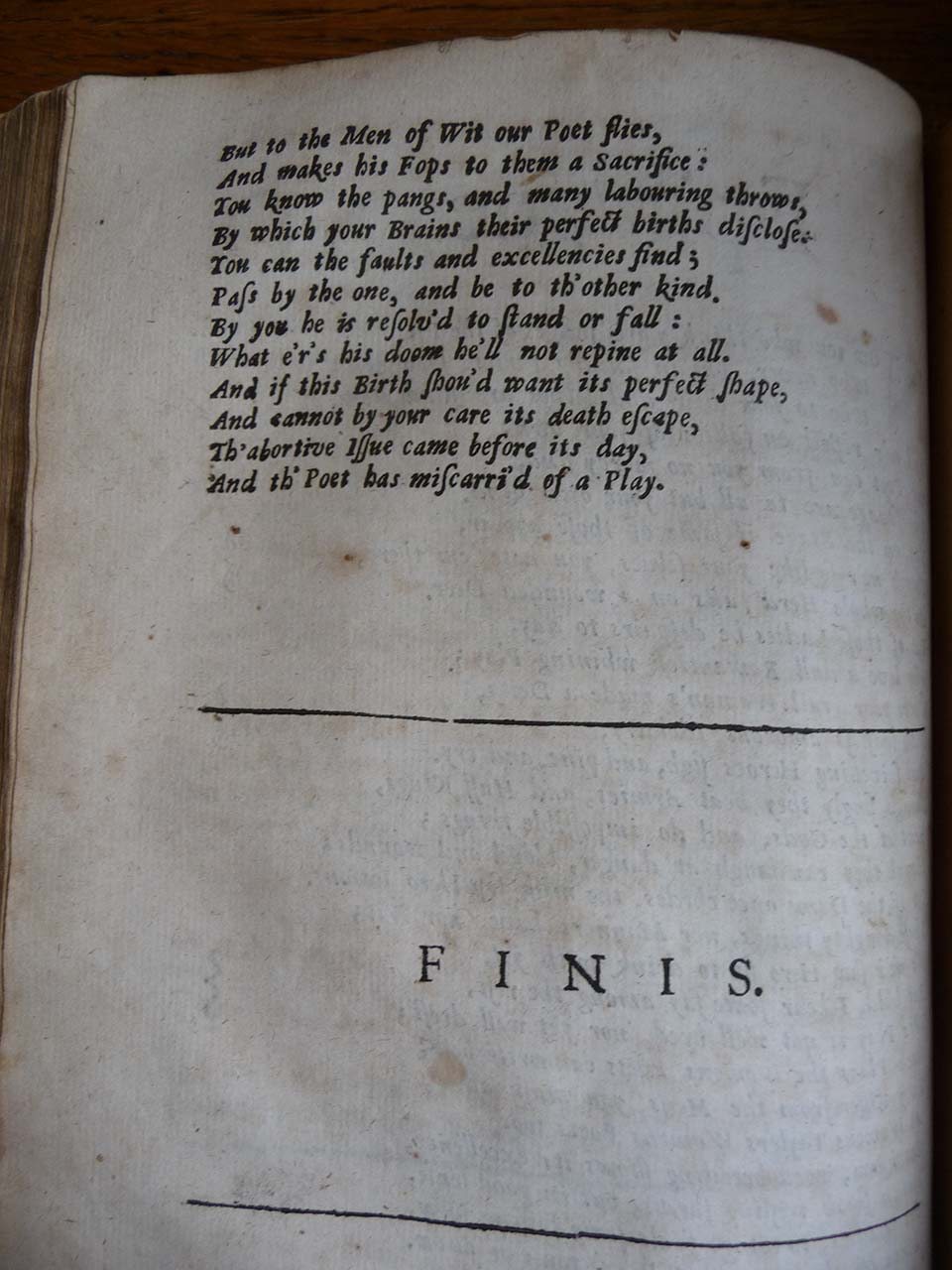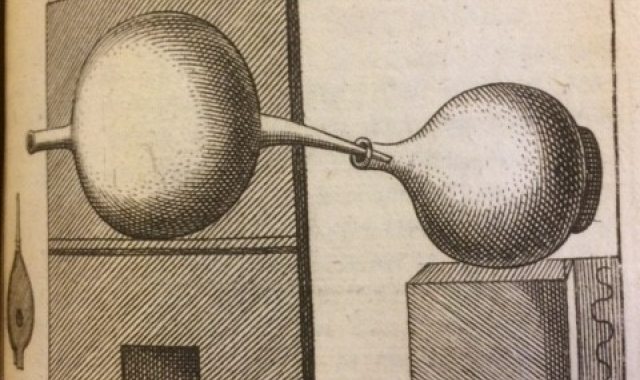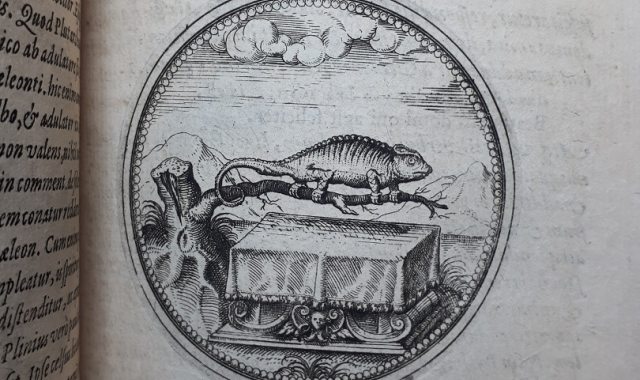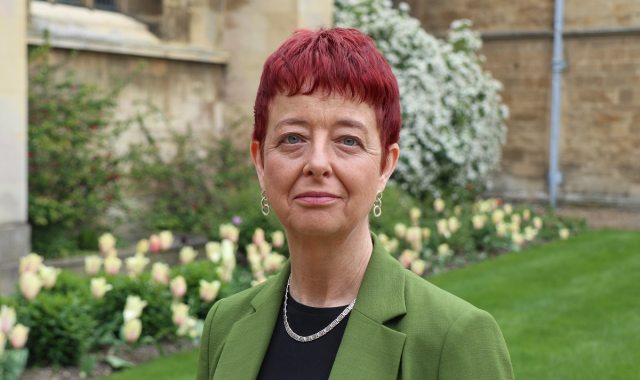To the men of wit our poet flies
The Virtuoso, by Thomas Shadwell. Printed in London by T. N. for Henry Herringman, 1676.
Lower Library, Aa.1.19/5

Thomas Shadwell (1642–1692) is the only Caian so far to have held the post of Poet Laureate. Though primarily a successful playwright he is perhaps best known for his long running literary feud with John Dryden, which culminated in the publication in 1682 of Dryden's Mac Flecknoe, "the greatest poetic lampoon in English literary history", and certainly amongst the most venomous of examples in a tradition of literary infighting still very much with us today:
The rest to some faint meaning make pretence,
But Sh[adwell] never deviates into sense.
Shadwell was born in Norfolk, and educated at Bury St Edmunds School before coming to Caius in 1656 at the tender age of fourteen. He left the University without taking a degree, and joined the Middle Temple. He soon tired of the law, and his entry in the College's Biographical History tells us that he fell in with the greatest wits in the capital. Soon he was writing in earnest and his plays and prose works, though as bawdy as the time in which he lived, display a hatred of sham, a rough but honest moral purpose and a vivid picture of contemporary mores. Of the genesis of his plays he quipped in the prologue to The Virtuoso:
For wit, like China, should long buri'd lie
Before it ripens to good comedy…
Now drudges of the stage must oft appear
They must be bound to scribble twice a year.
The roots of Dryden and Shadwell's disagreement lay in their vastly differing opinions of Shadwell's idol, Ben Jonson ("the best drammatick poet that ever was", he declared), the techniques and role of dramatic comedy, and their deeply divided religious and political views. Soon the thrust of these differences developed its own momentum, and Mac Flecknoe is only one example in a long-running argument played out in the public sphere. Though it was not published until some years later, it has been argued that the composition of Mac Flecknoe was a direct riposte to the thinly veiled attacks made by Shadwell on Dryden in the dedication and prologue of The Virtuoso (the College's 1676 first edition is presented here).
While Dryden may have dealt the most telling satirical blow, in some senses Shadwell was to have the final triumph. In 1688 Dryden was dismissed as Poet Laureate for refusing to take the Oath of Allegiance to the new, Protestant, monarchs William III and Mary II. His replacement, upon the recommendation of Laurence Hyde, the 1st Earl of Rochester, was Shadwell.
The Poet Laureate died shortly afterwards, apparently from an overdose of opium, but his name is invoked today, in the Shadwell Society of the College.

